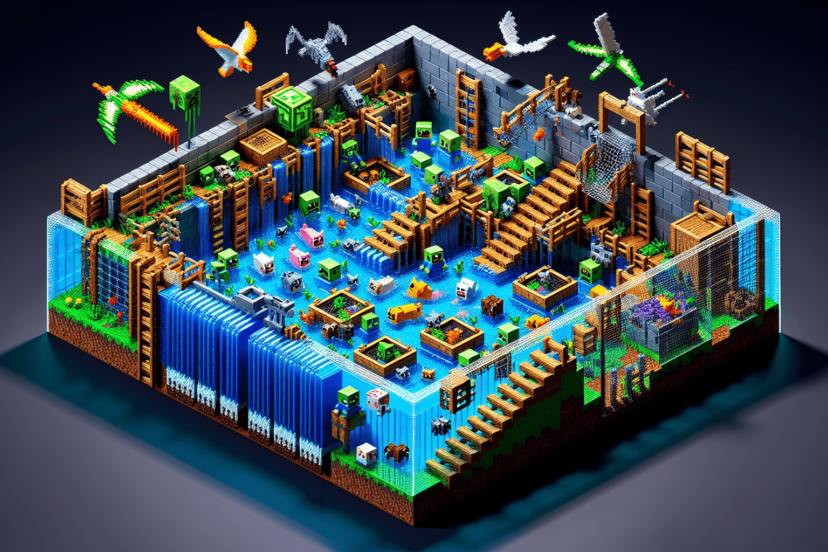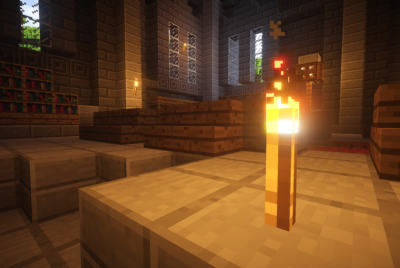Minecraft Mob Farm
Have you ever wondered how to optimize your resources in Minecraft and maximize the yields from mobs? We understand that building a successful mob farm can be a game-changer and one of the most rewarding aspects of Minecraft. It allows us to collect valuable items from hostile and passive mobs with minimal effort. In this guide, we’ll walk you through various aspects of creating a Minecraft mob farm, sharing tips and tricks to help you become more efficient in your gameplay.

Understanding Mob Farms
Before we start constructing, let’s clarify what a mob farm is and why it’s such an integral part of Minecraft strategy. Mob farms are structures that allow players to spawn, kill, and harvest items dropped by the mobs. These structures can significantly increase our efficiency, providing us with essential loot like bones, gunpowder, and ender pearls.
Types of Mobs
To build a successful mob farm, we need to understand the types of mobs that exist in Minecraft. Generally, mobs are classified into three categories:
- Passive Mobs: These are mobs that do not attack players, such as cows, chickens, and pigs.
- Neutral Mobs: These mobs remain peaceful until provoked. Wolves and endermen fall under this category.
- Hostile Mobs: As the name implies, these mobs are aggressive and attack players on sight, like zombies, skeletons, and creepers.
Each type of mob requires a different farming strategy. Our aim is not only to understand how to create a location conducive to their spawning but also how to efficiently gather resources from them.
Planning Your Mob Farm
Creating a mob farm is a process that benefits immensely from foresight and planning. The first step is deciding what mobs you want to farm based on your needs and the resources available.
Location
Choosing the right location is crucial. We should consider factors like:
- Biome: Different biomes spawn different mobs. For example, slimes are more common in swamp biomes.
- Altitude Levels: Some mobs prefer spawning at specific altitude levels. For instance, endermen are more frequent below level 60.
- Proximity to Resources: It’s efficient to construct our mob farm near our main base or resource centers for easy access.
Materials Needed
Once we’ve settled on a location, it’s necessary to gather the right materials. Here’s a basic checklist of what we might need:
| Resource | Purpose |
|---|---|
| Cobblestone | Basic building blocks for the structure |
| Water Buckets | Used for water streams to move mobs |
| Hoppers | Collect items dropped by mobs |
| Redstone | For advanced farms with automated features |
| Torches | Control light levels and prevent unwanted spawns |
By understanding what we need and why, we can save ourselves from making multiple trips and ensure a smooth building process.
Building a Mob Farm
Now comes the exciting part – building the mob farm. There are various designs and strategies we can employ, each with unique advantages and challenges.
Basic Mob Farm Design
For beginners or players seeking simplicity, a basic mob farm is an ideal start.
- Build a Platform: Construct a large flat platform in the sky. This reduces the chance of mobs spawning on the ground.
- Create Dark Rooms: Mobs spawn in dark areas, so building enclosed spaces encourages their appearance.
- Add Water Streams: Incorporate water streams to direct mobs toward a collection point where they can be easily harvested.
This design leverages the basic mechanics of mob spawning and requires rudimentary resources.
Advanced Mob Farm Design
For the more experienced player, advanced mob farms offer efficiency and automation.
- XP Farms: Implementing mechanisms to allow mobs to spawn, fall and remain low on health so that we can finish them off with one hit, gaining valuable experience points.
- Drop Farms with Sorting Systems: Use redstone contraptions to sort items directly into chests or furnaces.
These options might require more resources and technical know-how but result in efficient resource management.
Optimizing Mob Farms
Once our farm’s operational, how do we make it even better? Optimization is key to any successful mob farm, allowing us to maximize yield and efficiency.
Lighting and Spawn Rates
Controlling light is crucial to managing which mobs spawn and when:
- Light Levels: Mobs generally spawn at light level 7 or lower. We can use torches to manage this.
- Controlled Spawn Platforms: Light up areas outside the farm to encourage mobs to spawn within our designed space.
Automation and Efficiency
Utilizing redstone contraptions and other mechanisms can automate our farms, reducing the need for constant player intervention.
- Hopper Systems: Automatically collect items and transport them to a central location.
- Auto Kills: Pistons or lava blades can be automated to kill mobs, ensuring a continuous flow of resources.

Common Challenges and Solutions
Even the best plans can encounter obstacles. By identifying common problems and solutions, we can maintain a consistent supply of resources with minimal hiccups.
Low Spawn Rates
Low spawn rates can result from various issues such as:
- Too Much Light: Try reducing the ambient light around and inside the farm.
- Non-Optimal Altitudes: Relocate to a better level for the mobs you aim to farm.
Item Overflow
If our farm is efficiently automated, we risk the problem of item overflow:
- Sorting Systems: Implement sorting systems to organize drops into respective chests.
- Regular Collection: Empty storage chests regularly to prevent loss of items.
Staying Safe
Safety in gameplay is just as important as efficiency. Here are tips for ensuring we don’t fall victim to our creations:
Precautionary Measures
Implement strategies to avoid MC (Minecraft) injuries, like ensuring mobs can’t reach us or escape the designated kill zone.
- Safe Walkways: Cover lava canals or other hazards with safe walkways to ensure safe navigation around the farm.
- Enclosed Collection Areas: Use fences or other barriers to contain mobs where necessary.

Final Thoughts
Building a mob farm can be both a challenging and rewarding project, providing us with bountiful resources that make our Minecraft experience more fruitful. Whether we’re sparked by the thrill of designing a grand structure or driven by the utility of making our gameplay more efficient, mob farms offer invaluable benefits. By understanding the mechanics and strategies involved, we can tailor our approach to meet our specific needs and preferences.
Remember, patience and creativity are our best friends on this journey. With practice and persistence, our mob farms will become both a testament to our skill and an essential asset in our Minecraft adventures. Happy farming!





